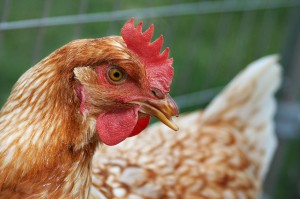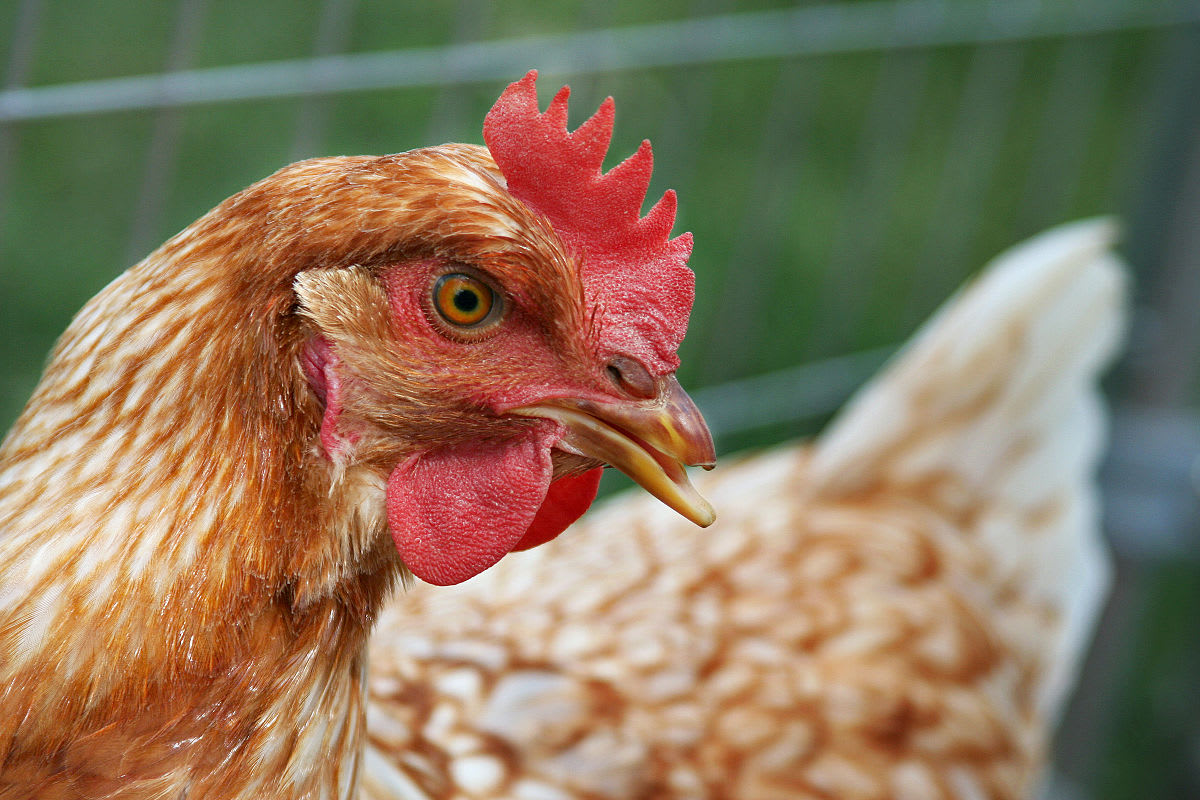 There is a custom, before Yom Kippur, to swing a live chicken over one’s head while reciting a brief text. The chicken is slaughtered and given to the needy. This is called “kapparos” (atonements). Not everyone does this. Many people – including yours truly – perform the ceremony using cash, which is then donated to charity. But the chicken custom exists and, despite its “political incorrectness,” it persists.
There is a custom, before Yom Kippur, to swing a live chicken over one’s head while reciting a brief text. The chicken is slaughtered and given to the needy. This is called “kapparos” (atonements). Not everyone does this. Many people – including yours truly – perform the ceremony using cash, which is then donated to charity. But the chicken custom exists and, despite its “political incorrectness,” it persists.
This caused some difficulty for me a number of years ago, when I was contacted by an animal-rights group regarding the practice. I told them that I could not call for an end to the use of chickens for kapparos but that I would gladly join them to advocate for the proper treatment of the chickens. For example, I would publicize that the chickens should not be kept crated in the hot sun, left without water, handled carelessly, or in other ways mistreated, actively or passively, until such time as they may be slaughtered. The animal-rights group told me that they found this perfectly acceptable.
Then I started getting hate mail.
Apparently, the animal-rights group posted contact information for a number of Jewish organizations with a request that their constituents reach out to us. They “reached out” in extremely antagonistic fashion. Holocaust associations being the universal go-to, especially when dealing with Jews, more than one person compared me, personally, to Hitler. Yes, despite the fact that I have never performed kapparos with a chicken, I was actually called “the Hitler of the chickens.”
I called the group and asked them to remove the call to harass me from their site on the grounds that I had already agreed to work with them. They declined, saying that it was a perfectly acceptable way to advocate for change. Obviously, with such “partners,” I declined to continue with any sort of joint venture. Which is a shame, because they really do have a point.
You see, there is a concept in Judaism called tzaar baalei chaim – the suffering of living things. More specifically, we’re supposed to alleviate tzaar baalei chaim – and we’re certainly not supposed to cause it! If the reason one is performing the kapparos ritual in the first case is to atone for one’s sins and get closer to G-d, it seems a no-brainer that the process should not include unnecessarily causing pain to some of His creatures.
Yes, we may slaughter the chickens for use as food. This is permitted. And giving the chickens to the needy is meritorious. But it doesn’t justify heartless treatment of the bird in advance of that fate. We see two things when G-d placed Adam in the Garden. He told Adam to conquer the Earth and to rule over the various creatures (Genesis 1:28). The world’s resources are here for our benefit and they should be enjoyed. But G-d also told Adam to work and to guard the Garden (Genesis 2:15). We see that we also have an obligation to protect the world. We may use animals – including eating them – but we may not abuse them. Use, not abuse.
The Talmud (Baba Metzia 85a) tells us that a calf being led to the slaughter once ran to Rabbi Yehuda HaNasi, AKA “Rebbi.” It stuck its head under his garment, seeking refuge. “Go!” Rebbi told it. “This is why you were created.”
Rebbi’s answer was not incorrect, but it was certainly unsympathetic to the calf’s position. G-d decided that the good rabbi – the author of the Mishna, no less! – needed to be taught a lesson in compassion. He was struck with an ailment that lasted for 13 years.
The punishment lasted until one day, when Rebbi’s maid was about to sweep away a nest of baby rodents. Rebbi stopped her, citing Psalms 145:9, “G-d’s compassion is over all His creatures.” When he did that, G-d said, “Now he gets it!” and took away his symptoms.
Contrast this with the case of Moshe. According to the Midrash (Shemos Rabbah 2:2), G-d selected Moshe as the one to lead His people because of the care with which he treated a runaway lamb from the flock he was shepherding. The message is clear: G-d likes it when we care for His creatures.
Many mitzvos and halachos display this sensitivity toward animals1. Among these:
- We may not slaughter an animal and its offspring on same day (Leviticus 22:28);
- We must shoo away the mother bird before taking her eggs or chicks from the nest (Deuteronomy 22:7);
- We may not slaughter an animal until the eighth day after its birth, ostensibly to allow its mother to fulfill its maternal instinct to nurse (Leviticus 22:27);
- We are obligated to help even an enemy unpack the cargo from a heavily-loaded animal, so as not to prolong its suffering (Exodus 23:5);
- We may not feed ourselves until after we have tended to our animals’ needs (Brachos 40a, based on Deuteronomy 11:15).
There are many other examples one might bring.
It’s perfectly fine to do kapparos with live chickens if one does so properly, but that’s a mighty big “if.” Tzaar baalei chaim is a big responsibility and no one needs even unintentional mistreatment of animals on their record going into Yom Kippur. If a person can’t ensure that the chickens will be treated properly – and that includes making sure that they’re not mishandled by the children – then one may be better off performing kapparos with money instead.
1 It’s impossible for us to truly know the reasons underlying the mitzvos but there are lessons that we glean. See the excellent book The Taryag Companion by Rabbi Jack Abramowitz for more on this subject.
The words of this author reflect his/her own opinions and do not necessarily represent the official position of the Orthodox Union.

